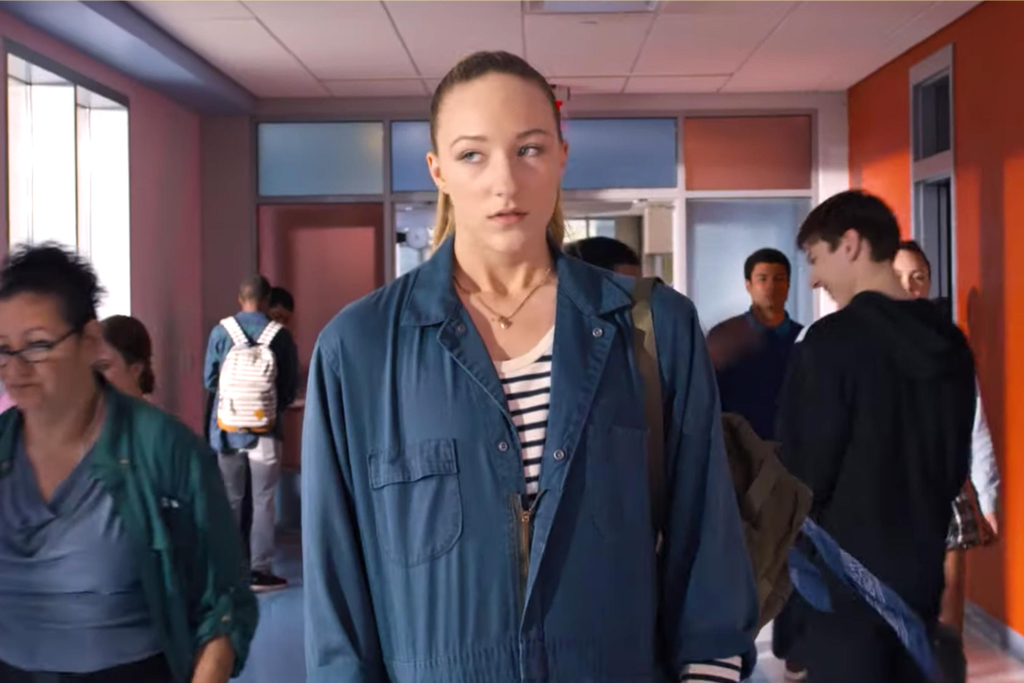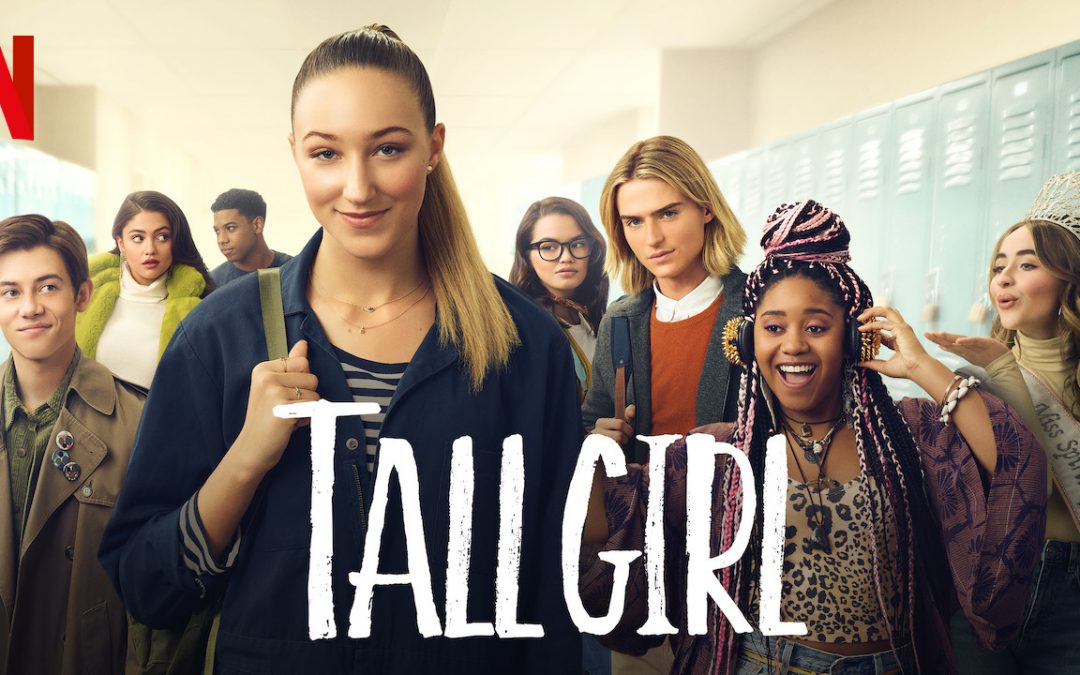The recent Netflix film, Tall Girl, contests the issues of bullying in high school towards a girl who sticks out in a crowd because of her height. Directed by Nzingha Stewart in 2019, Tall Girl attempts to give viewers hope for love even if they are “different”. With its basic outline and cheesy love story lying within, viewers are brought along on an awkward journey that takes them back to high school.
Beginning with the main character, Jodi Kreyman (Ava Michelle), the audience watches her everyday struggles – not only in school but also at home. Her family wishes that she would accept herself and offer so they “solutions” to Jodi that – to her – only make things worse. It isn’t until Jodi is accepted by an attractive boy, the Swedish exchange student Stig Mohlin (Luke Eisner), that she finally starts to think positively about herself. It is this aspect of the story that sets the film back in its message. Yes, everyone should feel comfortable in their own skin, but they need to find this comfort on their own, not with the help of another person. A person’s self-perception should be based on their own thoughts and not established solely by other people. If Tall Girl had offered Jodi’s self-perception and how she overcame this obstacle in another way it might have had a more influential meaning, but rather it shows how she needs affirmation from her peers in order to accept herself.

The film points out the idea of self-affirmation, yet it seems to ignore the literal issue found in the name of the film—tall girl. The film illuminates how many teens face bullying at school if they are deemed different, but it doesn’t highlight making fun of individuals with height differences. It merely avoids this by generalizing all types of bullying. If the film had addressed this “tall girl issue” more, it may have been more meaningful to people with similar experiences within the audience. The narrative outline of a “different” person on the receiving end of bullying and later learning to love themselves within the course of the film is a basic and overused story line that has already been explored in many other films, and because of this the meaning the directors attempted to imbue in Tall Girl comes off as stiff and not well thought out.

Throughout Jodi’s journey to accept herself the viewers watch as she ends up in an unexpected love triangle. Though it doesn’t last long, Jodi eventually finds out and then realizes who has always been there for her. This aspect of Jodi coming to the realization that she has always been loved, but didn’t realize it is what sets Netflix romance films back on the element of surprise to a degree that can be attributed to a cliche. Many times these films are predictable as to who will fall in love with who at the end of the film because the surprise element is given away too many times. It doesn’t allow the viewers to make up their own assumptions. A few other Netflix films that have the same predictable ending are: The Kissing Booth, When We First Met, Sierra Burgess is a Loser, The Perfect Date, and To All the Boys I’ve Loved Before. If these films offered a more complex story, they would have had a greater impact on the audience.

Tall Girl is a film to reconsider its stances on the issues it portrays for reasons such as the lead female character feeling uncomfortable with herself and needing a male character to get involved, as well as its broad generalizing of bullying within schools. By narrowing down the issues they attempt to address it would allow for a more creative and potentially meaningful film that would allow viewers to understand the adversity that tall, self-conscious, individuals may face. Overall, Tall Girl could have had more potential if the issues were narrowed and if the ending wasn’t as obvious like other Netflix romance films.
Tall Girl was released on September 13, 2019 and is available to watch on Netflix.
![]()


Recent Comments